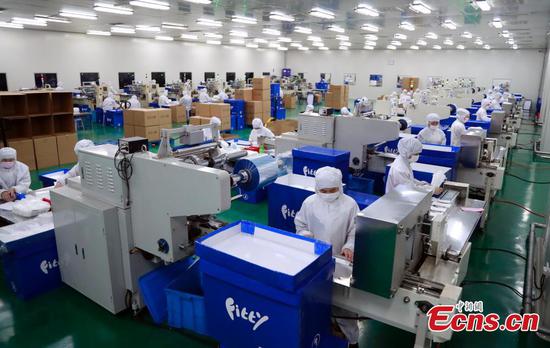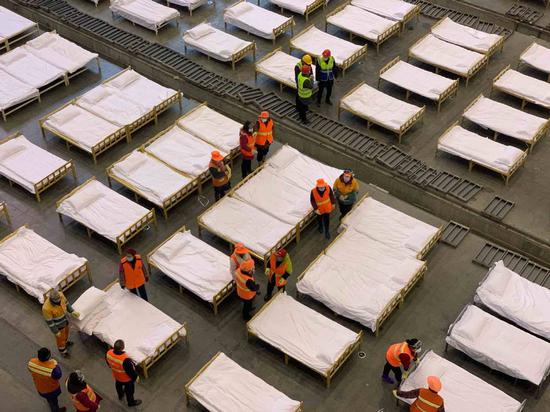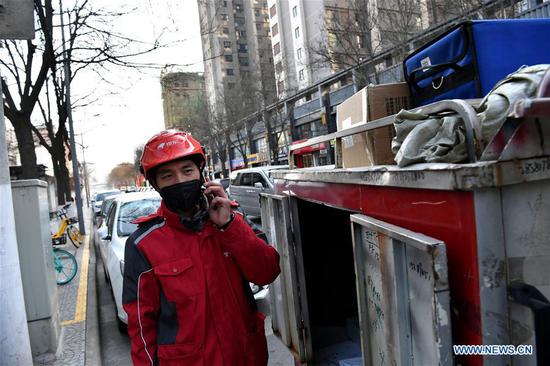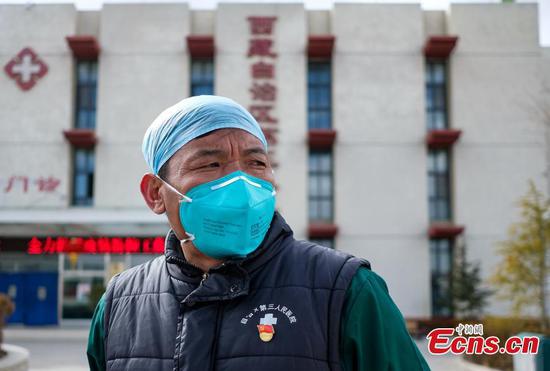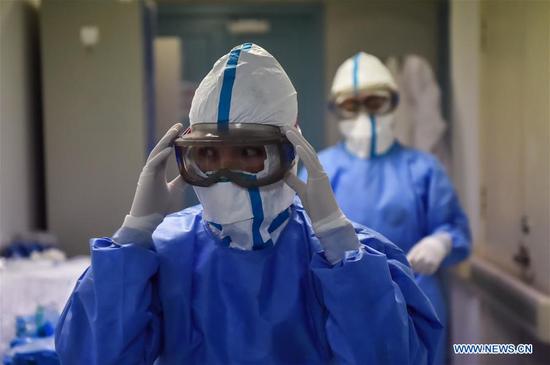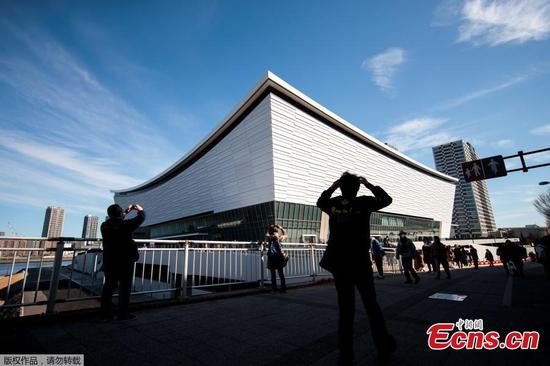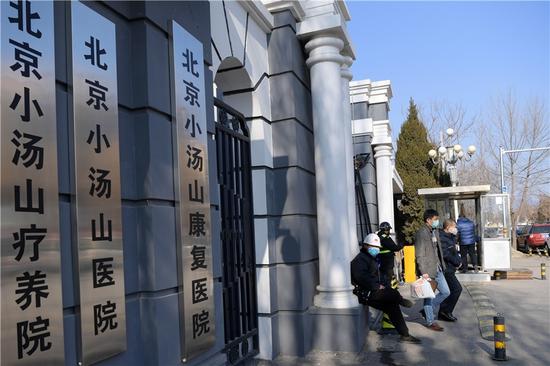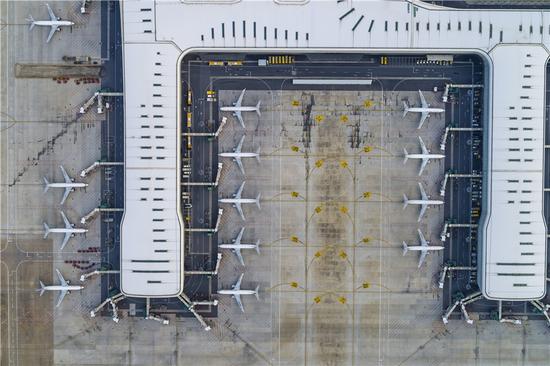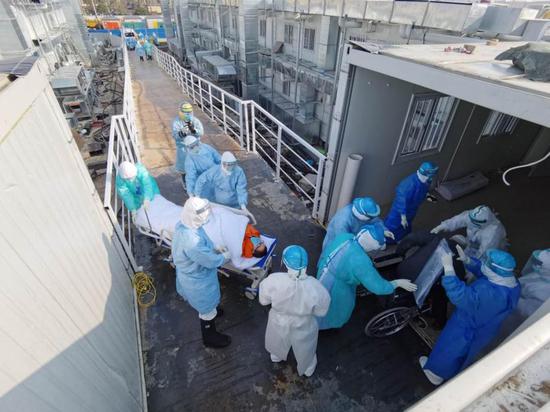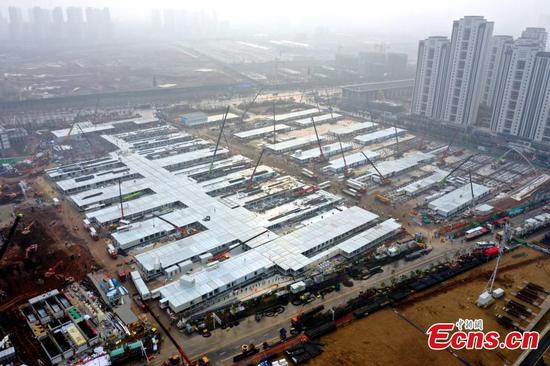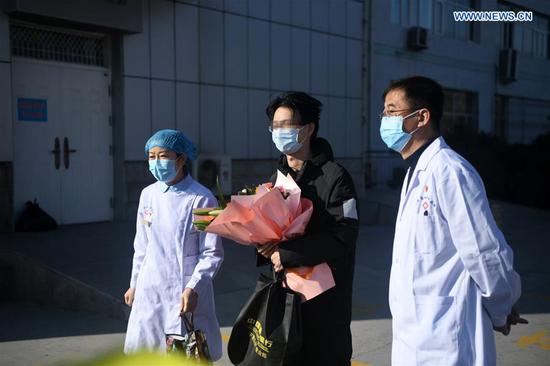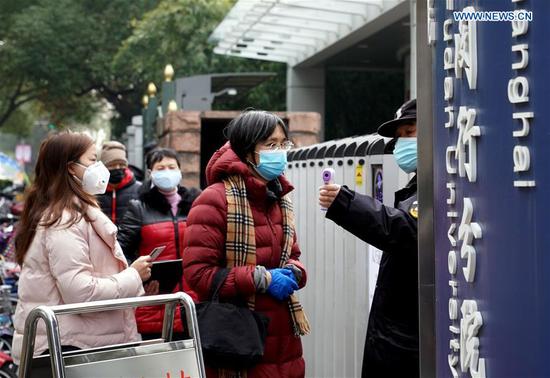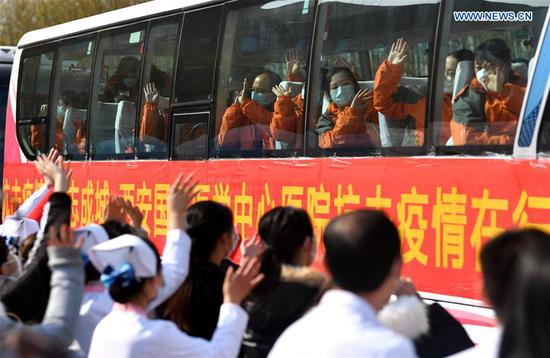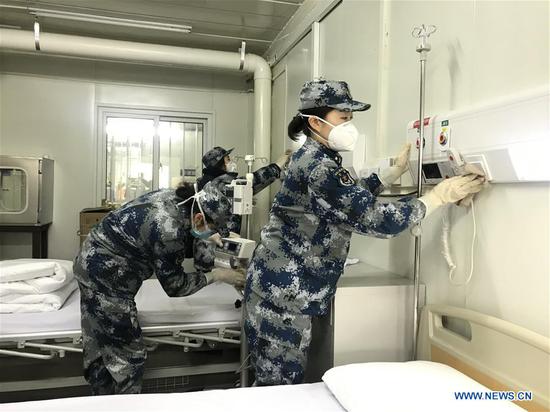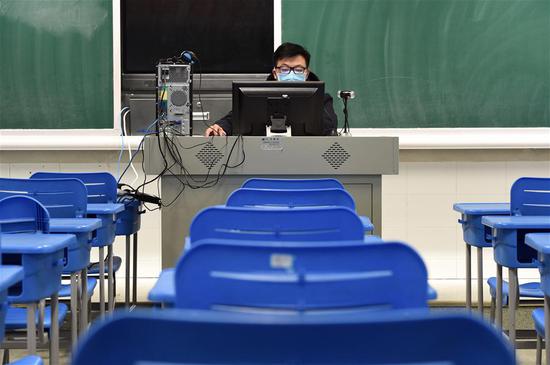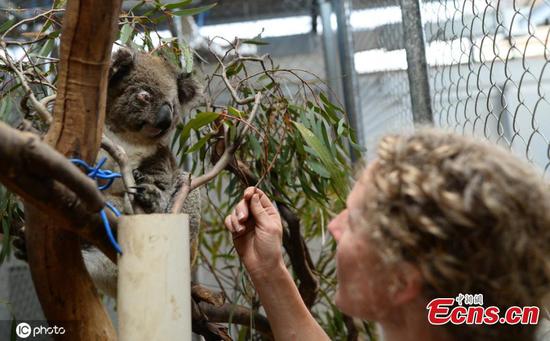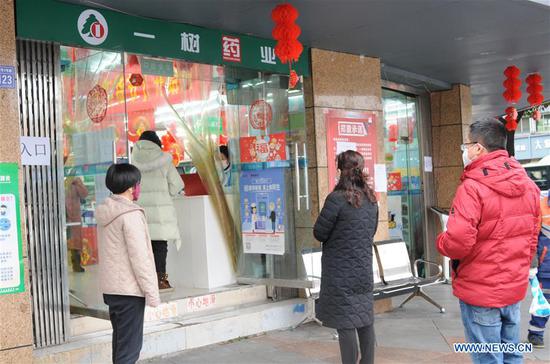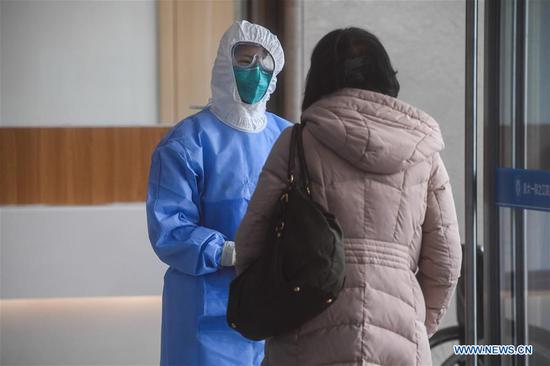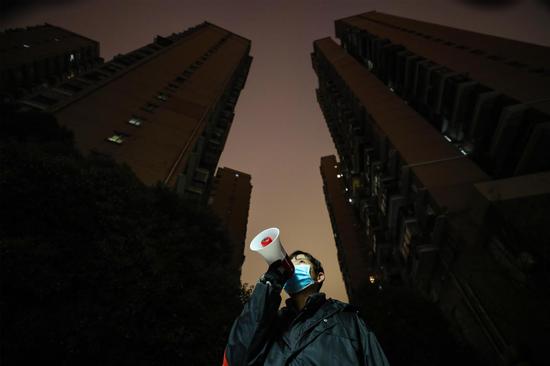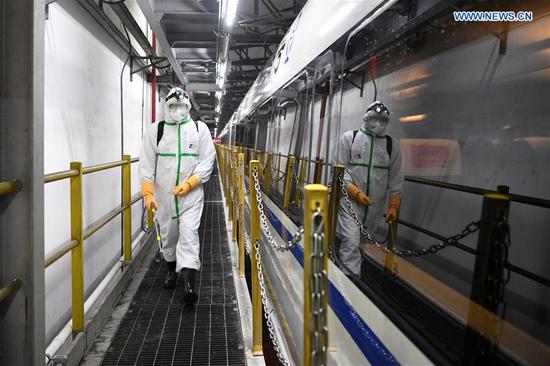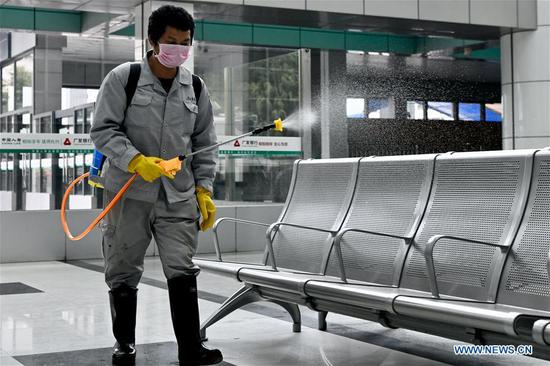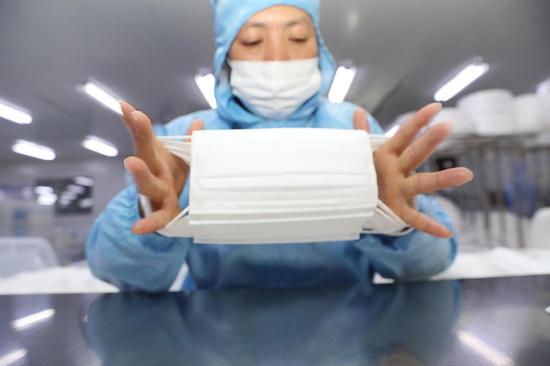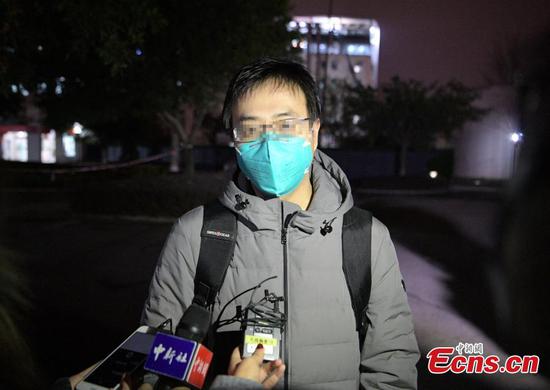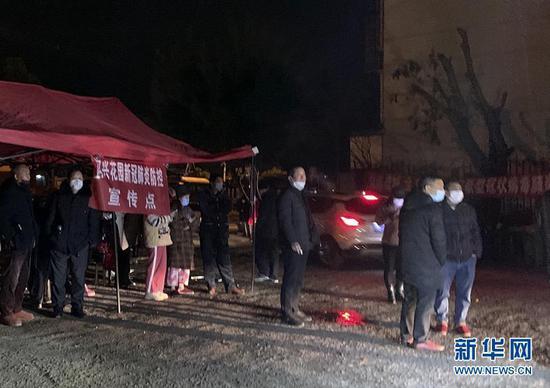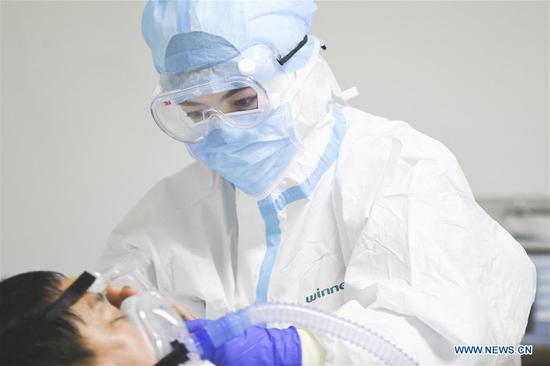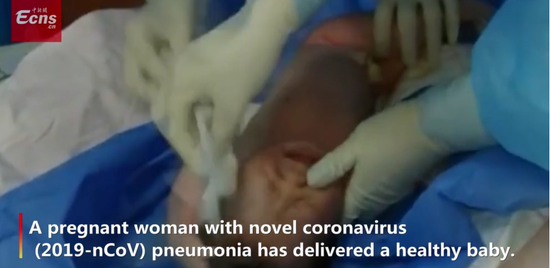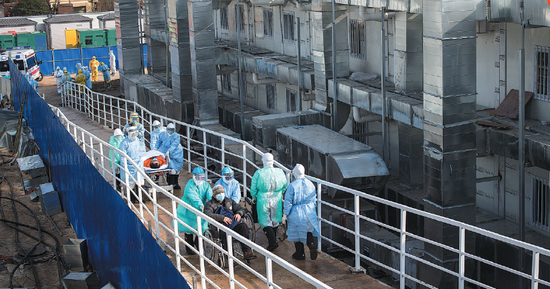
Medical workers escort patients infected with the novel coronavirus to Huoshenshan Hospital in Wuhan, Hubei province, on Tuesday. The hospital, which was built in 10 days, has started to admit patients infected with the virus. (XIAO YIJIU / XINHUA )
A meeting chaired by Premier Li Keqiang in Beijing on Tuesday adopted measures to enable more patients infected with the novel coronavirus in Hubei province and especially Wuhan to obtain treatment, improve recovery rates and reduce fatalities.
Participants at the meeting of the leading group of the Communist Party of China Central Committee on coping with the outbreak reiterated that helping Hubei and its provincial capital, the epicenter of the outbreak, are top priorities in curbing the contagion.
As of Monday, the number of confirmed cases of novel coronavirus rose to 20,438 on the Chinese mainland, including 425 deaths, with 2,788 people in critical condition. Hubei province alone reported 13,522 infections with 414 deaths.
The government will requisition a number of hotels and other venues for purposes of receiving and treating patients with mild symptoms or for medical observation of close contacts, said a statement released after the meeting.
Some multi-specialty hospitals will be transformed into dedicated hospitals to receive infected people, and the government will build a number of makeshift hospitals and assign another 2,000 medical workers to support epidemic control and prevention efforts in Hubei, the statement said.
Authorities will send more high-caliber medical teams to take over hospitals or inpatient wards that receive critically ill patients, it said.
Medical treatment at the primary level will be bolstered, and medical workers will be granted more rest to protect their physical and mental health, the statement said.
The meeting also highlighted the need to boost the diagnostic test capacity in Wuhan to reduce testing times, with measures to allow for eligible third-party institutions to conduct nucleic acid tests.
It also called for further refining of diagnostic and treatment methods so that therapies already proved effective can be included in standard medical procedures.
Participants at the meeting also called for resolute steps to concentrate treatment and protection resources at the outbreak's front line, saying that the supply of key necessities must be ensured.
Producers of protective gowns and surgical masks were urged to return to maximum production capacity as soon as possible and to further expand their production capacity, the statement said, adding that imported medical resources that comply with related standards must be put to use as soon as possible.
The meeting also underlined the importance of coordinating key businesses, especially central State-owned enterprises, to step up their production of key items.
Transport networks must be unimpeded to improve the efficiency of resource distribution and ensure market supply, the statement said.
The meeting called for the State Council's mechanism for coordinated control and prevention to be refined to better manage the supply and demand balance of medical resources and ensure better coordinated distribution of key resources on a daily basis.
The transport network must be better coordinated to reduce travel congestion after the Spring Festival holiday, the statement said.









